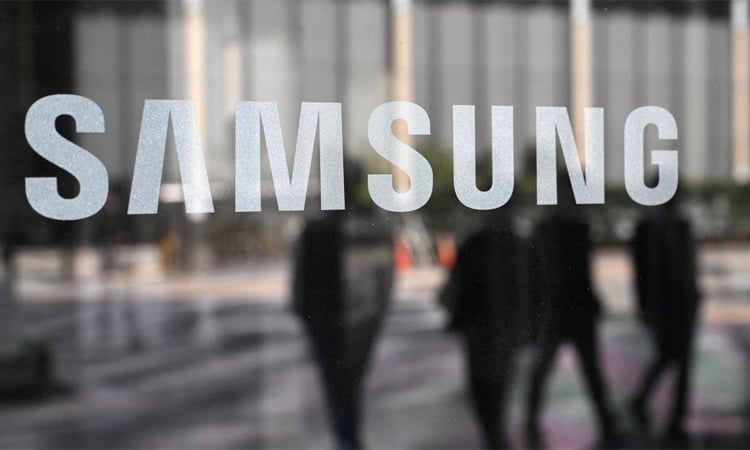News Flash


SEOUL, July 31, 2025 (BSS/AFP) - South Korean tech giant Samsung Electronics' operating profit dropped by more than 50 percent year-on-year in the second quarter, its regulatory filing showed Thursday, as US curbs on AI chip exports to China hit sales.
The company reported an operating profit of 4.7 trillion won (US$3.4 billion) for the April-June period, marking a 55 percent decline from a year earlier, according to the filing.
The company's net profit came in at 5.1 trillion won, marking a 48 percent year-on-year decline, the filing showed.
"Despite significant growth in revenue from the first quarter, earnings for the Foundry Business remained weak due to the impact of inventory value adjustments that stemmed from US export restrictions on advanced AI chips to China," Samsung said in a press release.
Going into the second half of the year its foundry business will "ramp up mass production", the company said, adding it will strive to "improve factory utilization and profitability through expanded sales to major customers".
"AI demand is expected to remain robust due to continued investments by major cloud service providers, and therefore server demand for both DRAM and NAND is expected to stay strong," Samsung said, referring to processing chips and chips used for data storage.
Samsung Electronics is the flagship unit of South Korea's Samsung Group, by far the largest of the family-run conglomerates that dominate Asia's fourth-largest economy.
-Tesla deal-
The disappointing earnings report comes on the heels of two positive developments: the end of legal jeopardy for its chairman Lee Jae-yong and a multi-billion-dollar deal with Tesla.
Lee was accused of stock price rigging, breach of trust and accounting fraud by prosecutors but his acquittal was upheld by the country's highest court earlier this month, ending a years-long legal drama at the tech titan.
It also follows Samsung's signing of a $16.5 billion deal with Tesla under which it will provide the electric car maker with AI6 chips through the end of 2033.
The agreement is expected to provide a major boost to Samsung, which has faced headwinds in its foundry business, lagging rivals SK hynix and Taiwan's TSMC in the race for cutting-edge artificial intelligence chips.
The deal, which represents 7.6 percent of the firm's 2024 sales, is a "critical step" toward widening its place in the fast-changing AI chips market, MS Hwang, research director at Counterpoint, told AFP.
The deal will be "bolstering the company's customer portfolio -- a critical step for wider customer reference", he said.
The foundry business involves contract-based manufacturing of chips designed by other companies.